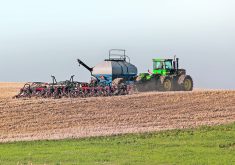I want the agriculture sector to be more efficient. I’m in it. I’m in it in a variety of ways. It’s hope that keeps me pushing through the sludge.
Really, I want the thing that unifies Canadian agriculture, fosters a regulatory environment that has accountability and competitiveness baked into it and provides a solution to what has become too many organizations claiming to represent farmers. I want that thing to be a singular eureka moment that wakes me up in the middle of the night and initiates real and positive change as soon as it is implemented.
Read Also

Budget seen as fairly solid, but worrying cracks appear
The reaction from the agriculture industry to prime minister Mark Carney’s first budget handed down November 4th has been largely positive.
That, though, is nonsense. The devil lurks in the details and to lurk within the details of the agriculture sector in Canada is an exercise in moving slowly, sometimes blindly and sometimes backwards. All of this while grasping to the hope that improvement is possible and trusting that you are, in fact, moving things in the right direction.
In the editing world, there is an exercise called kill your darlings.
“Writing is a painful process and most experienced writers will tell you that good writing involves substantial rewriting,” reads an excerpt from Masterclass.com. “An essential part of the rewriting process is combing through your work and cutting out material that isn’t essential. Sometimes this means we have to lose things that we are proud of and attached to. When you edit out material like this, you are killing your darlings.”
Crafting analogies between mantras of the editing world and the ag sector may seem like overstepping, but I think there’s something to this one.
I have sat around provincial tables, municipal tables and many national tables. Every single one of them has darlings and could stand to be edited.
However, for many people and organizations drawing incomes from agriculture, self-preservation is the darling and there are few strong enough to recognize that and fewer still that would act on it.
These decisions are hard to make and the ag industry has been putting off making them for a long time.
The regulations that govern ag in Canada have many darlings.
At least a dozen agricultural organizations are themselves darlings and dozens more could shed their darlings and better use agricultural dollars by working together.
And, just to get this on paper, a: I don’t have the solution to this problem and b: the answer is not to form yet another organization whose task it is to edit out these agricultural darlings.
Agriculture doesn’t have an authoritative body with acumen for identifying redundancies, weeding out the chaff and shuffling things around with a keen eye for the bigger picture, and that is OK. Such an authority would be too absolute.
My opinion on what agriculture needs to affect change, is that civil servants and agriculture-group boards and staff must kill their own darlings, as crude as that sounds.
I really don’t want to say real change comes from within, because while true, it reduces what I hope is a compelling case to a tired cliché that is too easily dismissed.
When I have time to edit my own work, this is my process: I will read my article, move things around, come back to it the next day, trying to get rid of the flourishes I thought were brilliant the day before. Then, when I think it’s free of fluff, I send it to an editor friend of mine, whose ruthless approach to his craft I both fear and revere. In the end, I’ll have something stronger than it was.
The details matter. If the sector can look inward, rummage through the details and ruthlessly edit itself, I think we will start moving in the right direction. We will become more unified as an industry and we will start to build a regulatory arena that has accountability and competitiveness baked into it.
Toban Dyck farms in southern Manitoba and shares his thoughts through media platforms.















